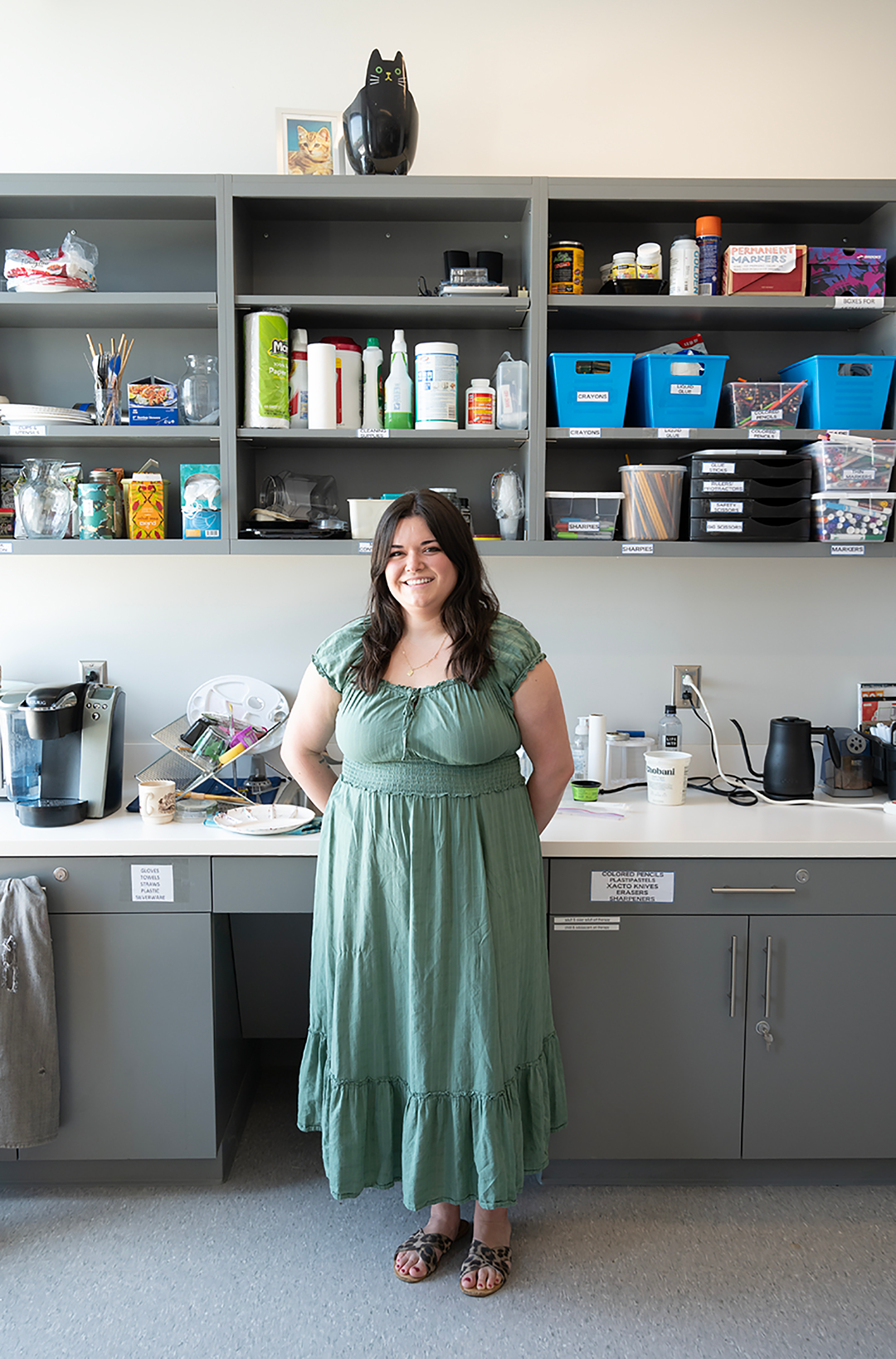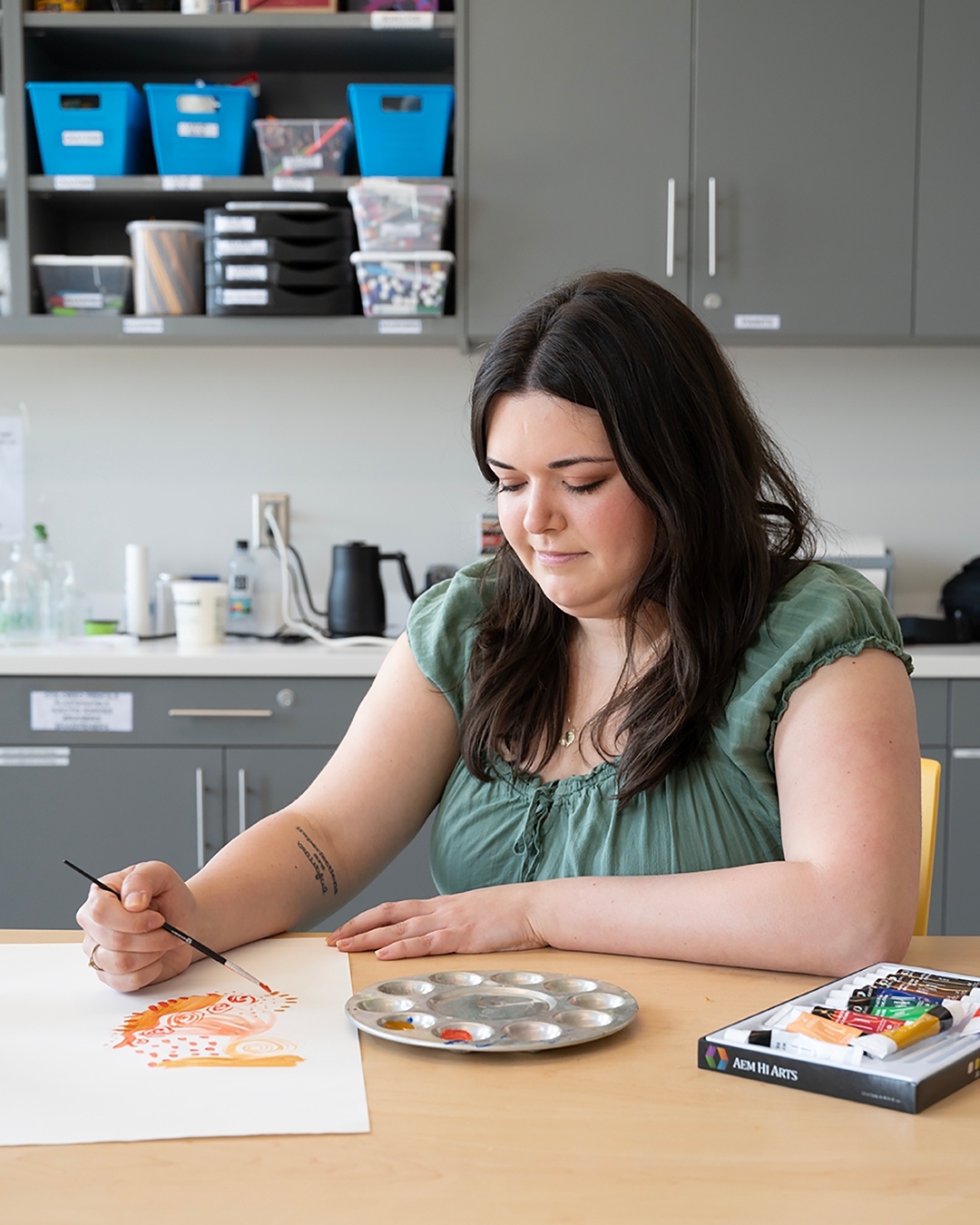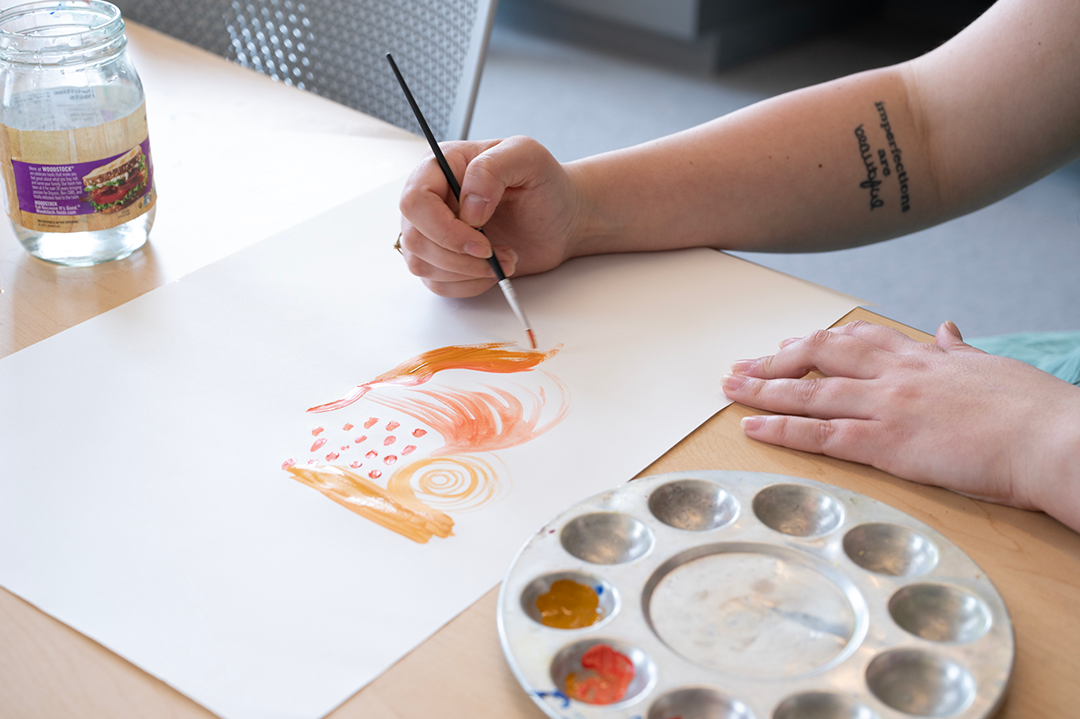Meet CNHP Alumni: Morgan Karcher, MA ’21
June 1, 2023
Drexel University's College of Nursing and Health Professions Department of Creative Arts Therapies prepares students in art, music and dance/movement therapies and counseling. Our students and alumni have a variety of areas of practice and passions that bring them to the college. For alumna Morgan Karcher, MA art therapy and counseling ’21, a Philly-based queer therapist at Nourish Therapy and Wellness, it's youth in the LGBTQ+ community.
 Activism in Art Therapy
Activism in Art Therapy
To me, art therapy is a complement to traditional counseling practices. It is a way to bring folks into a therapy practice that doesn’t require verbal expression and offers different outlets to express emotions. Sometimes we make things, sometimes we destroy things. I think it is a beautiful process and a varied way of expressing how you feel, especially when words feel difficult or impossible to access.
In addition to the positive impact that art therapy can have with clients generally, I have found that art therapy is a particularly useful intervention for clients in the LGBTQ community, especially LGBTQ youth. Art helps us tap into different elements of our identity, especially when we haven’t always had the voice to do so. And even within the LGBTQ community, there is a lot of identity exploration to do. I find that art therapy can lean into these areas and provide empowerment and voice to the client that they may not have found before.
As a queer therapist myself, I am constantly learning about my identity, personally and professionally, and I feel honored to be able to do that work alongside my clients. When I disclose to clients that I am queer, I often hear from them that this is the first time a therapist has disclosed this or that they didn’t feel affirmed in their identity by previous therapists. I really think it’s so important for all therapists to be competent in LGBTQ-presenting issues to affirm and empower our clients.
 Issues Facing LGBTQ Youth
Issues Facing LGBTQ Youth
As some may know, LGBTQ youth are facing discrimination as a community, be it at home or at school. A lot of it has to do with parents not understanding their child’s identity, and, honestly, that is some of my favorite and most difficult work to take on. I create space for parents in this process, including offering parent-only therapy sessions, and I talk with them directly about their experiences growing up. What was their family like? How did they view the LGBTQ community? How have parents or others in their lives, spoken about the LGBTQ community in the past?
The issues facing LGBTQ youth are huge. Suicidality, self harm, depression, anxiety, gender dysphoria or questioning. These are big topics that are not easy to solve or eradicate, but finding a trusted space to process emotions and connect to self is crucial. In my sessions as an art therapist, I emphasize that we are exploring the client’s identity as a whole. Their sexuality and gender identity are part of that whole, but there are other facets that make us who we are.
For a young person looking to start counseling, I would remind that that therapy is a human service. Sometimes you have to do a little “therapy shopping” to find a clinician who is right for you.
 LGBTQ Allyship for Clinicians
LGBTQ Allyship for Clinicians
As with any area of therapy, especially those which may not be a part of your lived experience, I think it is so important for clinicians to do research and reading on the communities they work with and to get involved with relevant organizations. It is a huge part of being a therapist and it is a part of being an advocate within therapy, as well as outside of it. There are many topics within the LGBTQ community that I am learning more about and research because I don’t have all the answers either. In my view, to be an affirmative therapist, you must put in this kind of work throughout your career to be effective and informed for your clients.
Looking to the Future
In terms of next steps in my career, I am looking forward to beginning practice as a fully registered art therapist. I plan to continue my work with the LGBTQ population and I look forward to working one-on-one with clients. In addition, I am excited to solidify my relationships with local schools, hospitals and community centers and serve as an advocate within these organizations. Advocacy is the center of my work, and I look forward to all opportunities to continue this important effort for my clients and community!
Edited by Izzy López